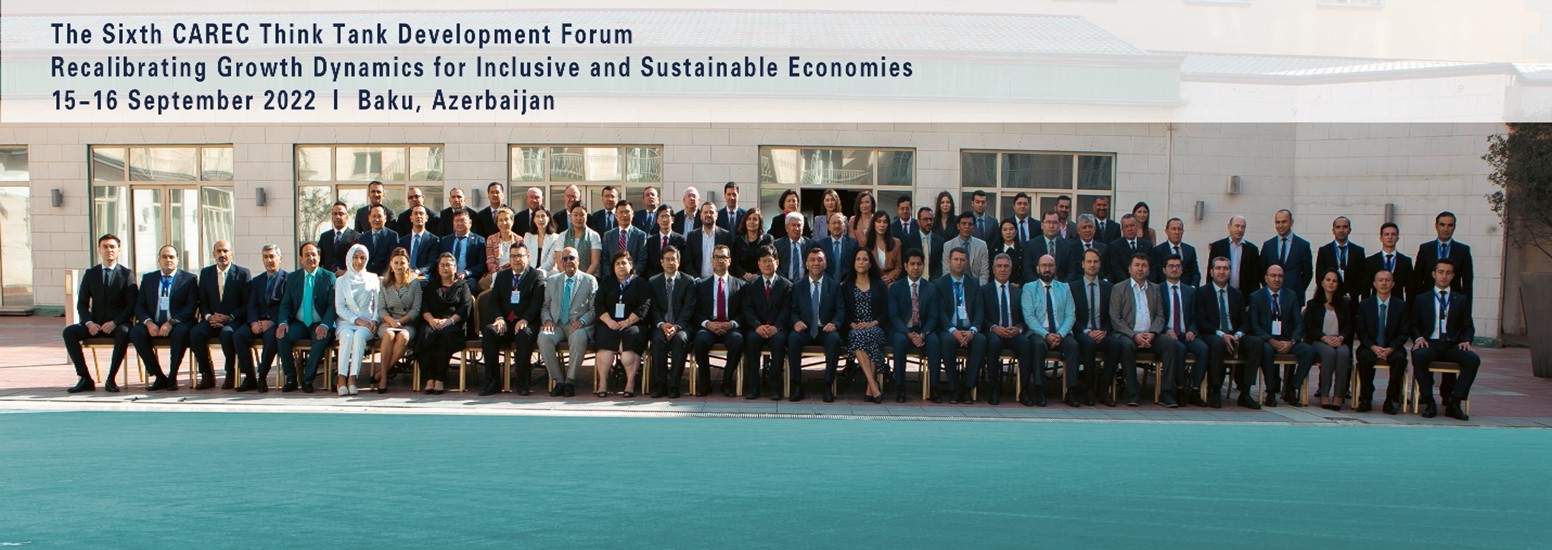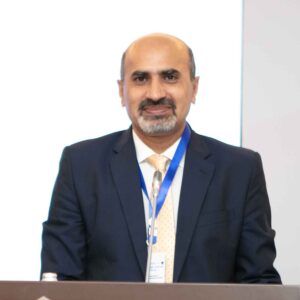East Asia Blog Series
Recalibrating Growth Dynamics for Inclusive and Sustainable Economies
Khalid Umar 19 Jan 2023
The Central Asia Regional Economic Cooperation (CAREC) countries have encountered a myriad of challenges in 2022 and are most likely to continue facing them in 2023 as well. Economic growth is expected to lose steam, and factors such as climate change, geopolitical instability, as well as the Russian invasion of Ukraine will place further pressure on inflation, debt burdens, international trade, inclusive and sustainable growth, and progress on the sustainable development goals (SDGs).
Growth, inclusivity, and sustainability
Policymakers continue to face a major challenge on how to formulate economic policies that simultaneously promote economic growth, reduce inequality, and ensure environmental sustainability. The growth outcome has to poverty alleviation and nations in the CAREC region must consider this a top priority.
Hundreds of millions of poor have graduated from extreme poverty in the last three decades, mostly in emerging economies, including the CAREC countries. However, the pandemic, climate change and regional conflicts have threatened to push millions of people into extreme poverty.
Climate change is a complex global challenge. To mitigate the risks posed by climate change to sustainable economic development in the region, a broad spectrum of regional policy and technical responses on a regional scale is essential.
A multipronged approach is crucial for ensuring even growth
Against the above backdrop, the 6th CAREC Think Tank Development Forum was organized on 15–16 September 2022 in Baku, Azerbaijan. The forum gathered over 150 participants drawn from leading think tanks, academia, governments, development partners, the private sector, and the media to deliberate how much recalibrating is required in CAREC economies to achieve inclusive and sustainable growth.
The forum discussed how global recovery from the pandemic has been uneven in CAREC countries. In 2021, certain countries performed relatively better than others during the recovery. Georgia, Tajikistan, and Uzbekistan performed the best, while Azerbaijan’s, Kazakhstan’s, and Pakistan’s performance were average; and the Kyrgyz Republic and Mongolia were not expected to recover to pre-pandemic levels before 2024. The forum also noted that gender gaps in education and labor force participation are immense in some CAREC countries, but income inequality is moderate and emissions per capita is below the global average. Furthermore, the region is unlikely to achieve any of the targets of SDGs by 2030.
Massive investment and productivity push could minimize inequalities
There is growing evidence that excessive inequality hurts long-term growth prospects. For growth to be sustainable, it needs to be inclusive, but this requires massive investment, which is a challenge given the already limited fiscal space in many countries.
Mobilizing taxes for development is the way forward. Countries should broaden their tax base, strengthen tax administrations, increase progressivity, widen social safety nets, and limit untargeted subsidies.
Reducing gender gap requires deliberate efforts to support the hiring of women and facilitate career progression, as catching up with developed economies has slowed and a new productivity push is needed. The catching-up progress of the CAREC economies with developed economies had significant momentum until about 2013. Between 2013 and 2021, there was an increase of only 0.3 percentage points to 17.5%. Easy gains from basic economic reforms, favorable terms of trade, capital inflows, and technology transfer seem to have been exhausted.
Well-established implementation and financing mechanisms can facilitate SDGs progress
The CAREC region is lagging when it comes to progress on SDGs. While there is some progress with regard to the development of green energy, progress on other SDG indicators has been slow.
Most countries have a well-established SDG coordination mechanism, but success requires a large institutional architecture. Most of these SDG mechanisms are chaired by those at level of prime ministers, and many have supporting technical secretariats, or working groups of line ministries focused on SDGs.
Most SDGs mechanisms are supported by statistical agencies, analytical units, and financing units. However, the limitation is that the coordination at federal/central level is high, but at local level the coordination is very weak.
Many of the national development plans are not budgeted for, and many lack sufficient finance, adding to the fact that the total amount of financing gaps is not identified. The private sector needs to be engaged in alternative sources of financing to achieve SDGs and maintain them.
Focus on green energy can mitigate the risks posed by climate change
Climate change is real. The most recent, ugliest, of this manifestation in the region can be seen from the catastrophic floods in Pakistan. Energy security is multidimensional and a measure of a unique nexus encompassing a country’s or region’s economic, political, geopolitical, institutional, legal, and regulatory aspects. As such, it is essential to include all aspects of the energy environment to assess energy security. For example, Taghizadeh-Hesary et al. propose four perspectives: availability (scientific/resource aspect); applicability (engineering or technological aspect); acceptability (environmental and social aspect); affordability (economic aspect).
To diversify the energy basket, the region needs to adopt a comprehensive framework to identify its energy requirements, measure availability of energy resources, acquire cutting-edge technology to minimize environmental footprints, and find ways to ensure affordable provision of clean energy. As with the increasing share of industrialized agricultural production, it is necessary to diversify energy consumption from too much reliance on fossil fuels to an optimal combination of renewable and nonrenewable energy resources.
A conflict-free, stable business environment can help accelerate economic growth in the region
Major geopolitical conflicts, coronavirus (COVID-19), and climate change have added additional negative externalities to the region’s economic woes. The pandemic took a heavy toll on people and livelihoods. Regional economic growth plunged into recession in 2020. Years of progress toward SDG Goal 1 on poverty reduction experienced a major setback, with 85 million people estimated to have been pushed back into extreme poverty in Asia-Pacific by the end of 2021.1 The impacts caused by COVID-19, climate change, and geopolitical uncertainties resulted in the region’s output loss of US$2 trillion between 2020 and 2022.2 Countries with larger external debt stocks are also more exposed amid rising global interest rates. In essence, more exposed economies tend to face larger potential impacts of the Russian invasion of Ukraine.
Multi-stakeholder cooperation is the way forward
A partnership is a vehicle for strengthening international and national cooperation to collectively address multidimensional socioeconomic agendas. The framework of partnership is based on four core elements:
- Shared objectives: Countries in the region may not share all but do share some objectives that are critically important for their participation.
- Guiding principles: Certain guiding principles must be shared within the cooperation framework.
- Inclusive modalities: These address matters on how to create an environment in which smaller and bigger partners both benefit from the partnership.
- Accountable results: There must be an accountable, results-based mechanism in order to assess outcomes.
No partnership globally can be sustained without partnerships within countries because actors that are going to participate in the process must be brought in, whether it is the private sector, nongovernmental organizations, or local communities.
1 Malik, H.A. 2022. Crisis Upon Crisis: Understanding Main Implications and Policy Analysis. Presentation at the 6th CAREC Think Tank Development Forum, Baku, Azerbaijan. September 2022.
2 Ibid.
Author

Khalid Umar
Chief Strategic Planning Division, CAREC Institute
Related event: 6th CAREC Think Tanks Development Forum


